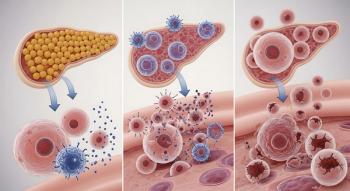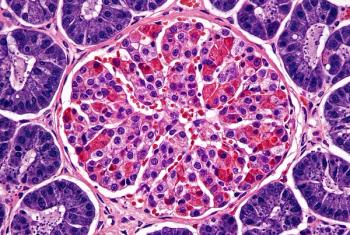
Lilly’s Once-Weekly Efsitora is Noninferior to Degludec in Type 1 Diabetes
Insulin efsitora was able to lower A1C in patients with type 1 diabetes but more patients experienced severe hypoglycemic events than patients taking insulin degludec.
The once-weekly insulin efsitora alfa has been shown to be noninferior to once-daily insulin degludec in a phase 3 trial of adults with type 1 diabetes, according to new
In the trial, efsitora met the primary endpoint of noninferior A1C reduction at week 26, reducing A1C by 0.53% compared with 0.59% for insulin degludec. But severe hypoglycemic events were higher in the efsitora arm compared with the insulin degludec arm. Hypoglycemia, in which blood sugar is too low, is a side effect of medications used to treat diabetes.
“People with type 1 diabetes need insulin every day. Currently, they can deliver the insulin using an automated insulin delivery system or by taking a daily basal insulin injection and multiple mealtime insulin injections each day,” Richard Bergenstal, M.D., executive director of the International Diabetes Center, HealthPartners Institute, said in a
Lilly’s efsitora is being studied in a global phase 3 program. In the open-label QWINT-5, the once-weekly efsitora is being compared with the once-daily insulin degludec in 692 patients with type 1 diabetes who randomly assigned to treatment. The trial consisted of a 52-week treatment period with the primary endpoint measured at 26 weeks. The primary objective was non-inferiority in reducing A1C compared with insulin degludec.
In the trial, however the estimated combined rates of patient-reported clinically significant or severe hypoglycemic events per patient-year of exposure through week 52 were higher in the efsitora arm compared with the insulin degludec arm. About 10% of patients in the efsitoria arm experienced severe hypoglycemia compared with 3% in the degludec arm.
Researchers suggested that there may be a need for additional evaluation of efsitora dose initiation and optimization in people with type 1 diabetes.
Insulin degludec, developed by Novo Nordisk, is a once-daily basal insulin that first received approval in 2016 with the brand name Tresiba to improve glycemic control in patients with type 1 and type 2 diabetes. The FDA approved in July 2022 Novo Nordisk’s unbranded insulin degludec, which launched at a discount of 65% off the list price of Tresiba.
Novo Nordisk is studying a different insulin, insulin icodec, as a once-weekly treatment patients with diabetes. In July 2024, however, FDA has
In May 2024, an FDA Endocrinologic and Metabolic Drugs Advisory Committee meeting was convened with a panel of independent scientific experts to discuss the benefit-risk of once-weekly basal insulin icodec in type 1 diabetes. The panel determined that the data available were not sufficient to conclude on a positive benefit-risk in type 1 diabetes.
In a briefing document ahead of the advisory committee meeting, the FDA indicated that the rate of hypoglycemic episodes was significantly higher in the insulin icodec arm compared with the insulin degludec arm.
Lilly’s insulin efsitora is also being studied in 928 patients with type 2 diabetes. In the QWINT-2 phase 3 trial, efsitora helped adults naïve to insulin therapy currently using and not using GLP-1 receptor agonists achieve an A1C below 7% when compared with once-daily insulin degludec. No severe hypoglycemia was reported with efsitora; six episodes were reported with degludec. The incidence of adverse events was similar in the two groups. Results
Newsletter
Get the latest industry news, event updates, and more from Managed healthcare Executive.























